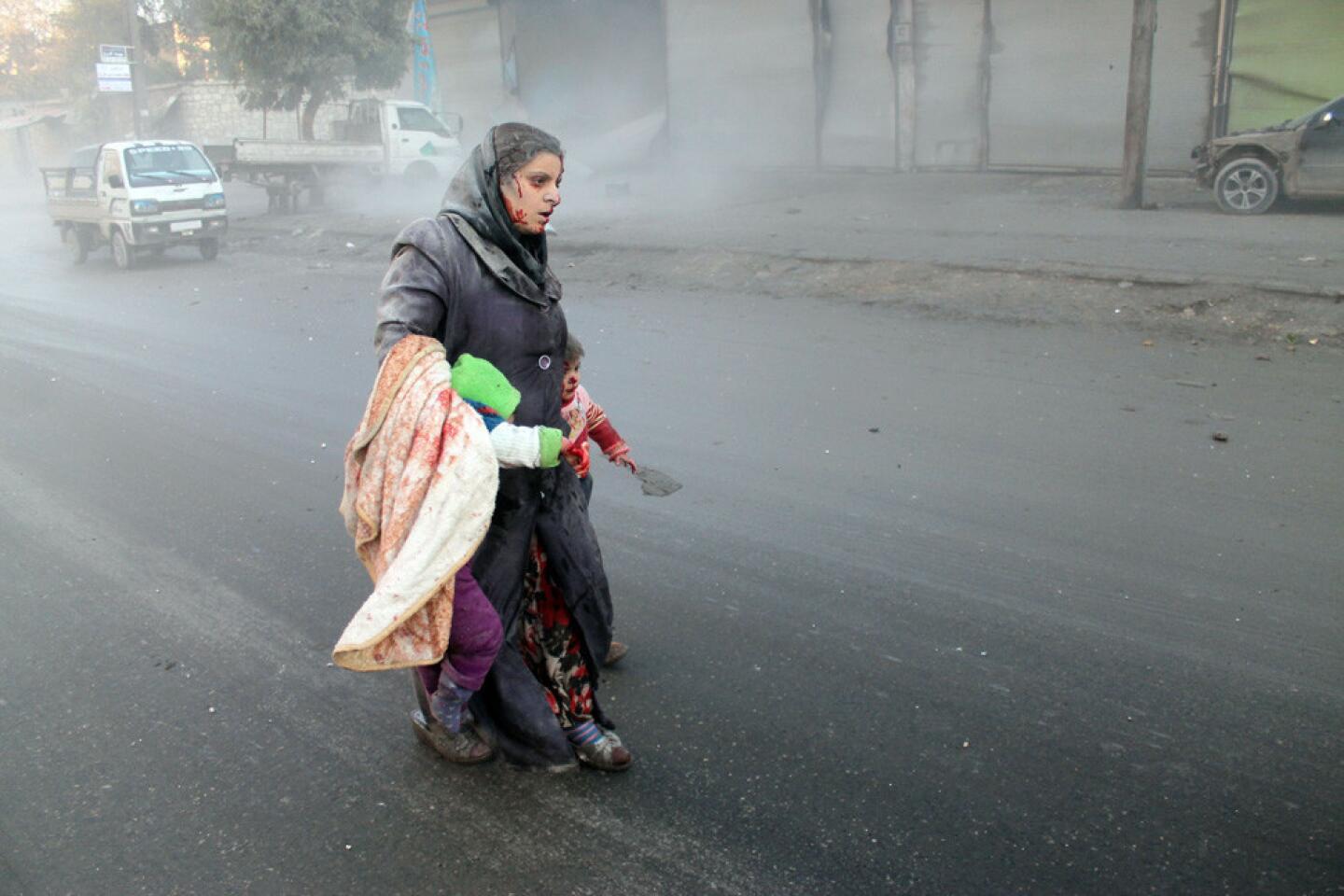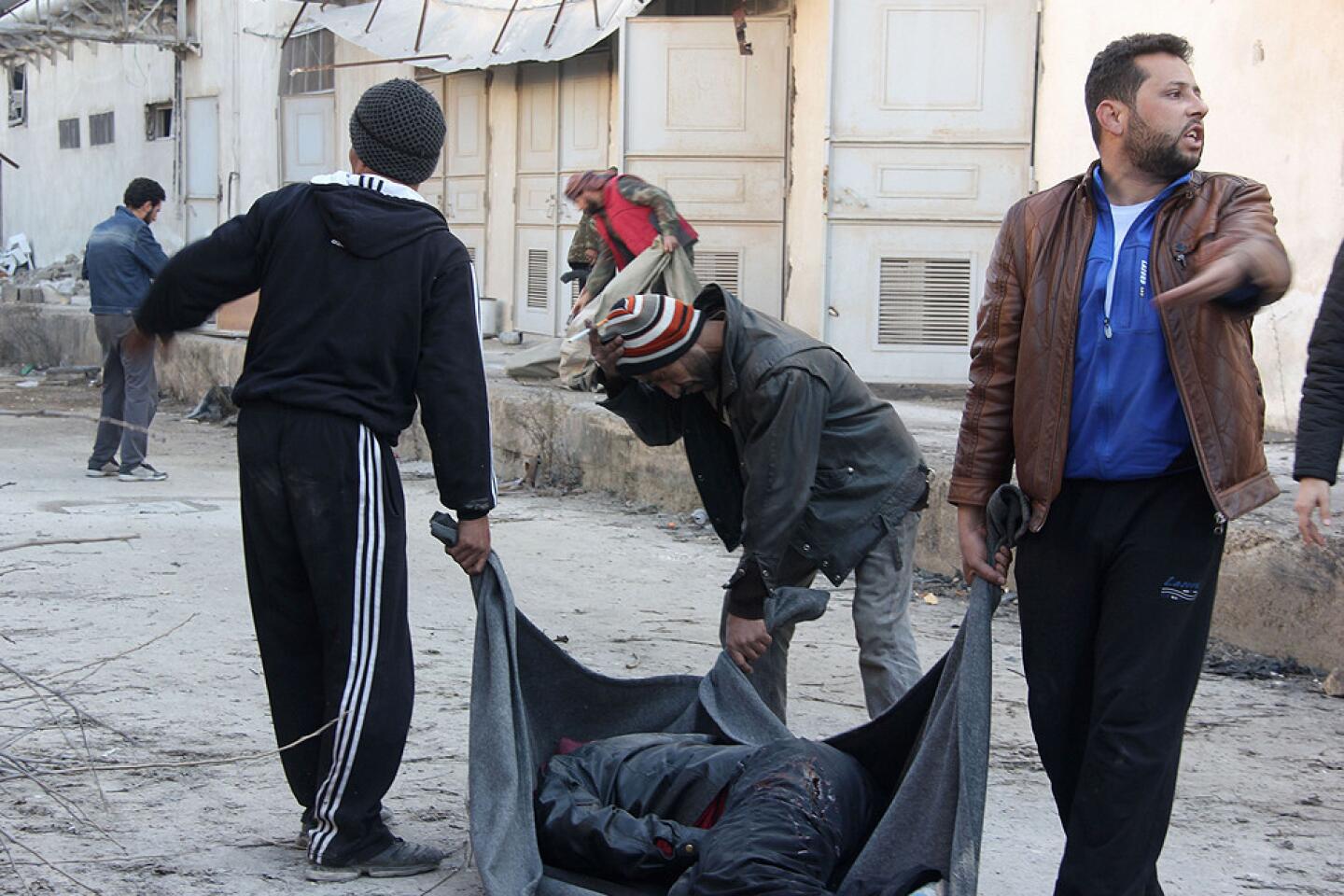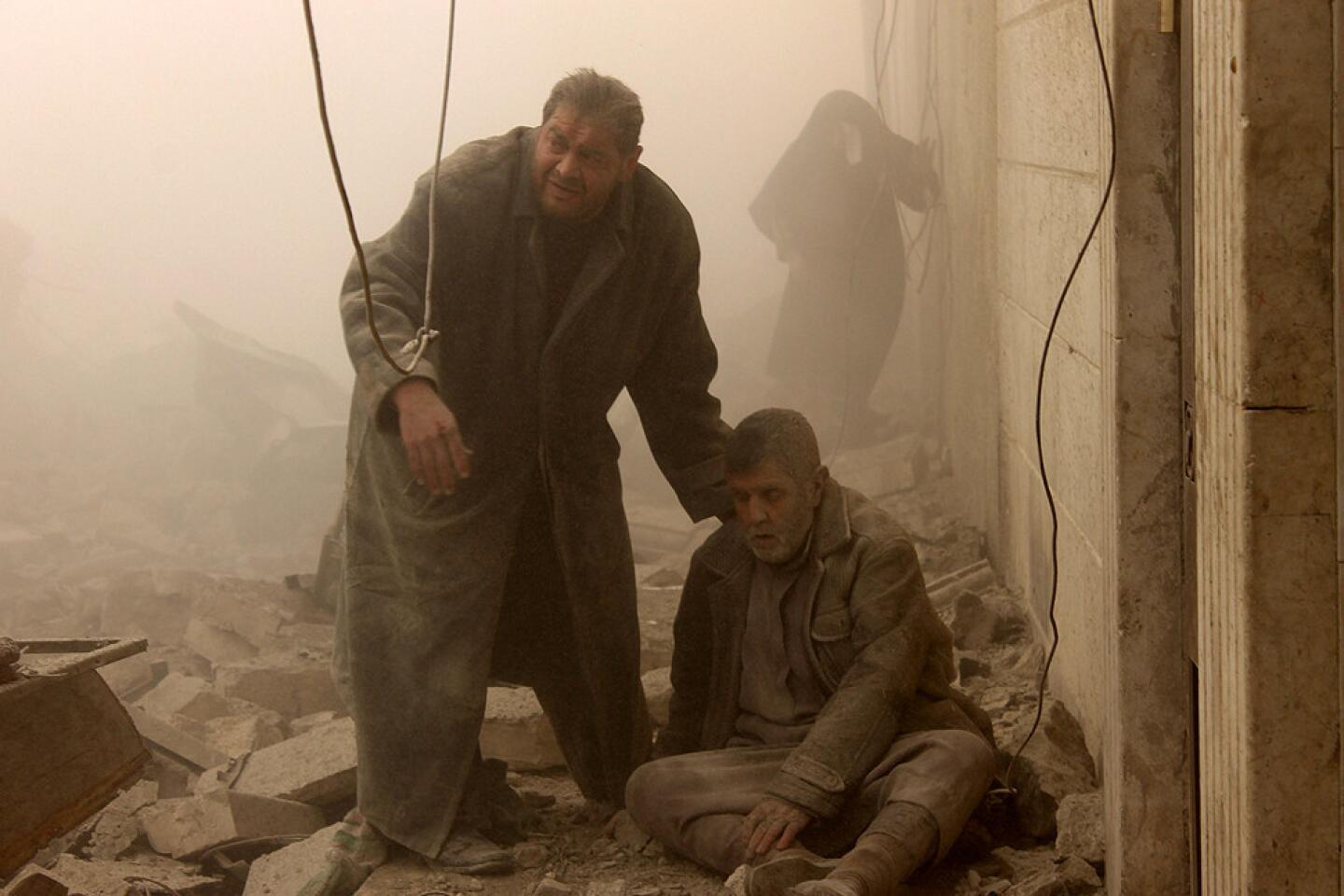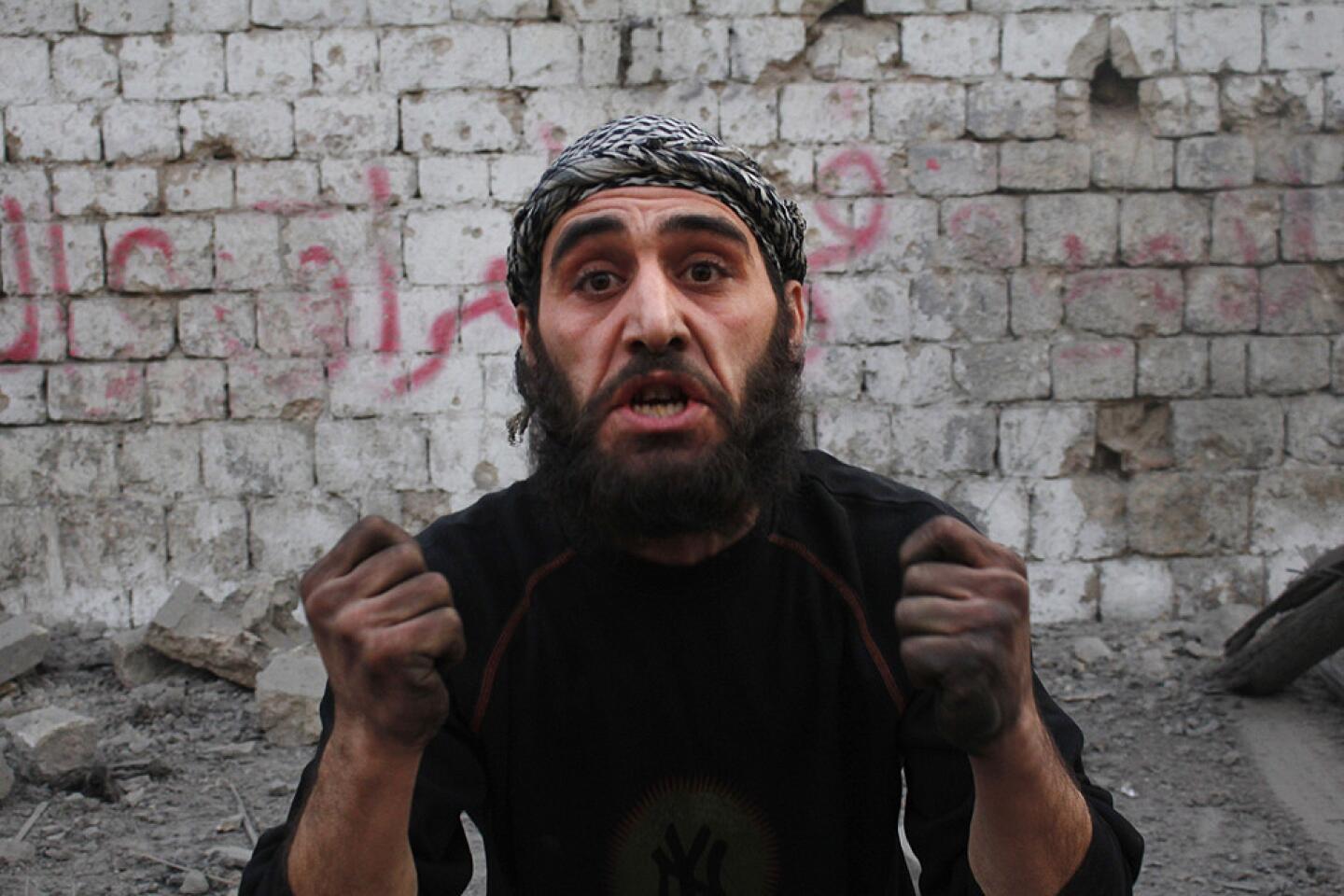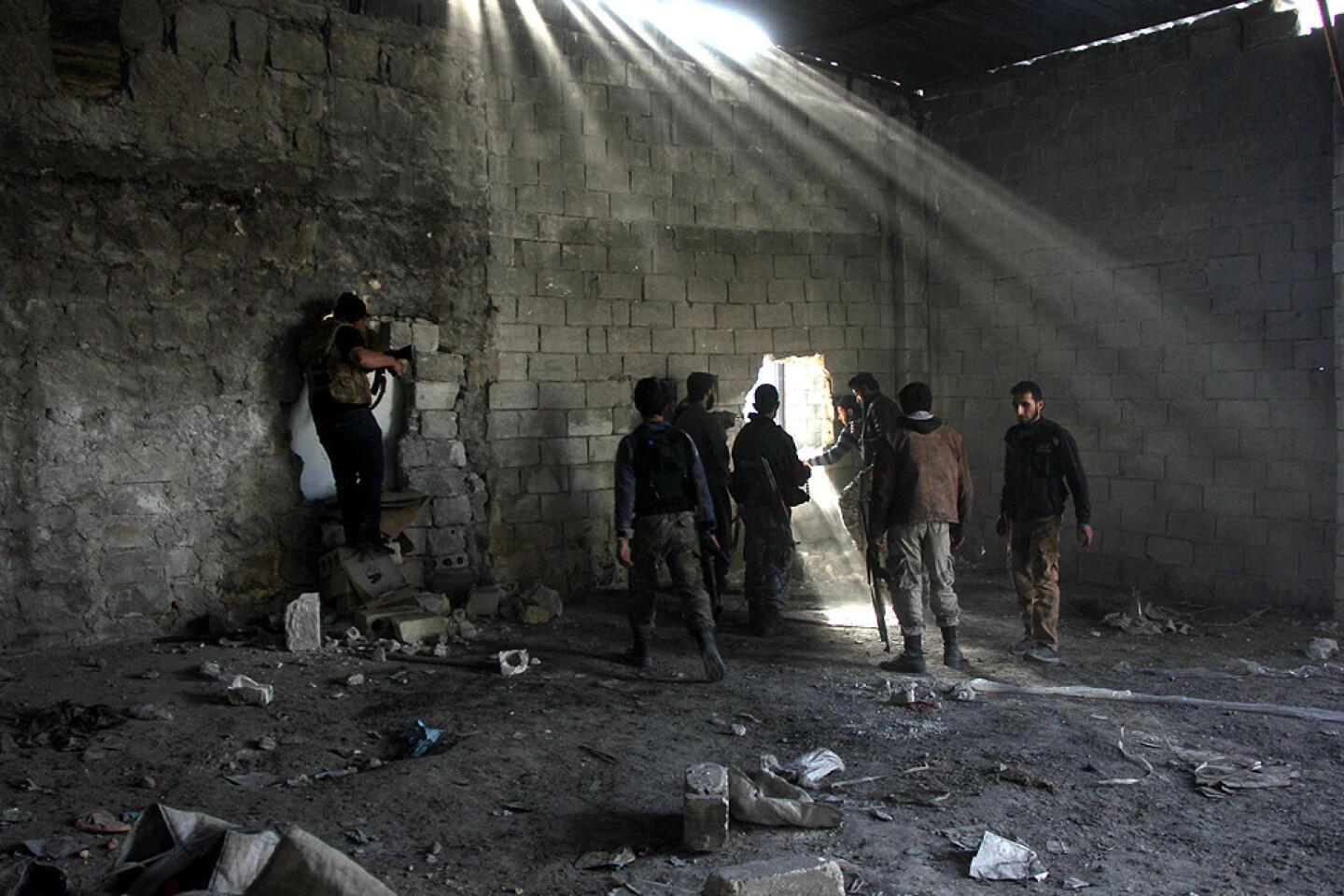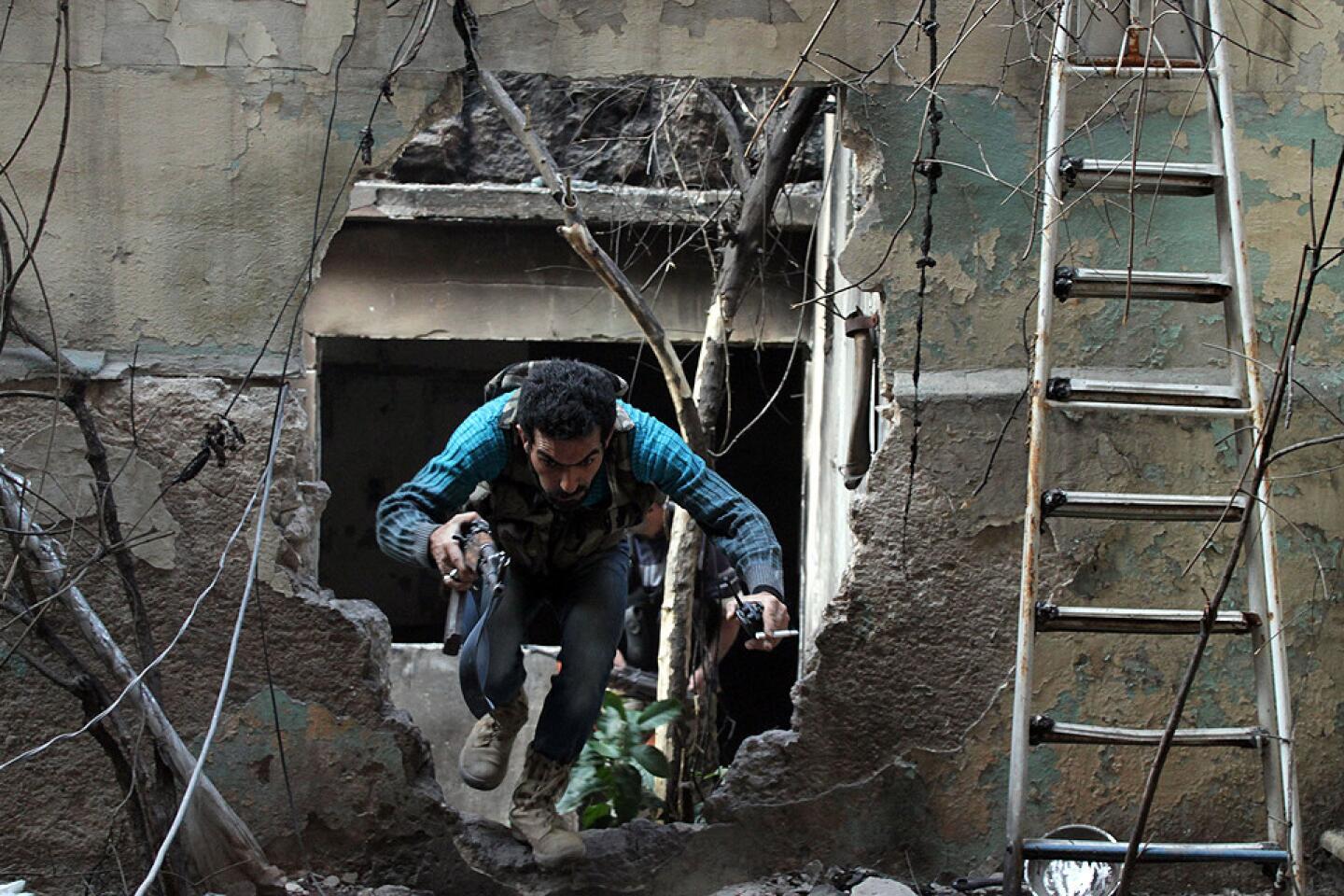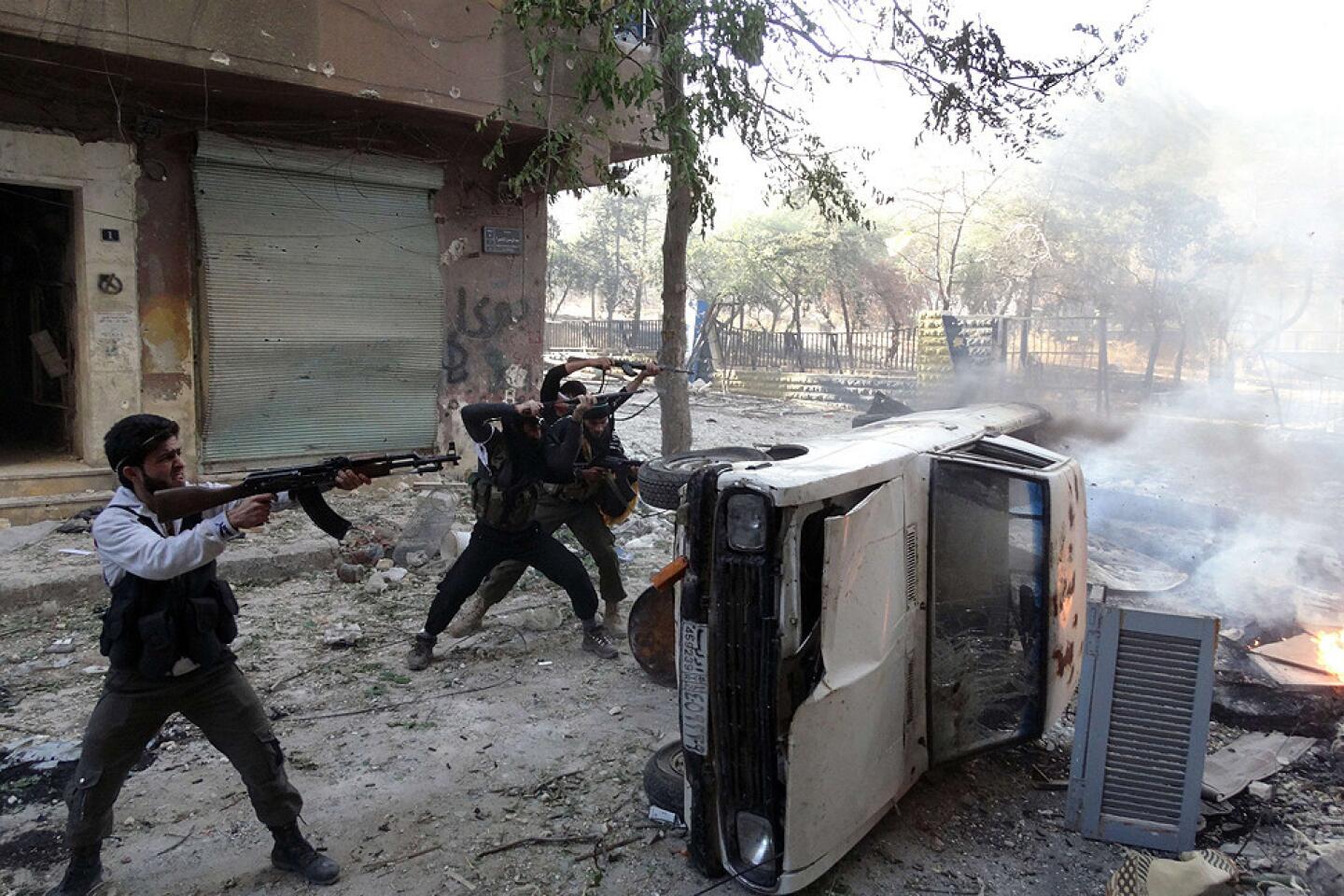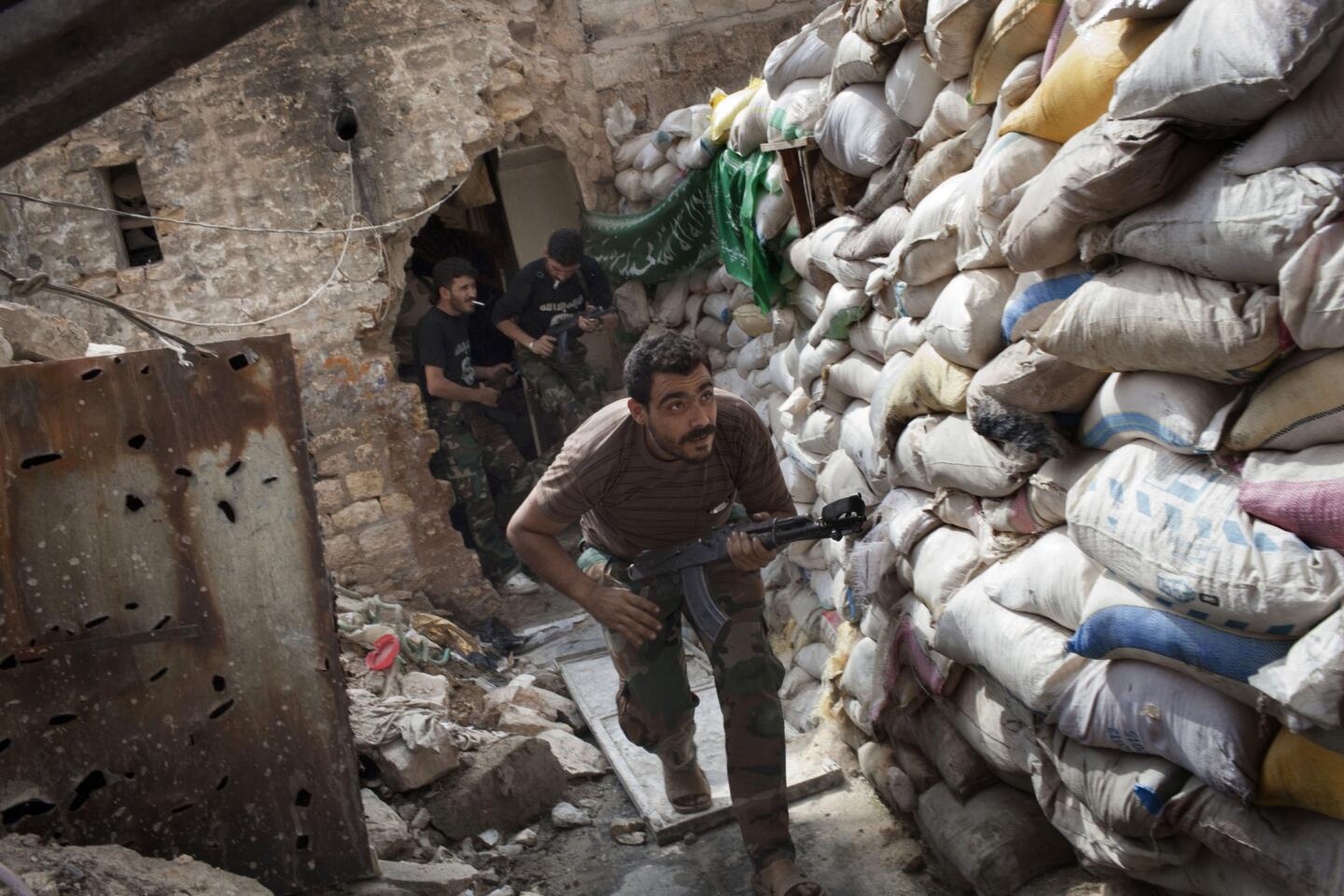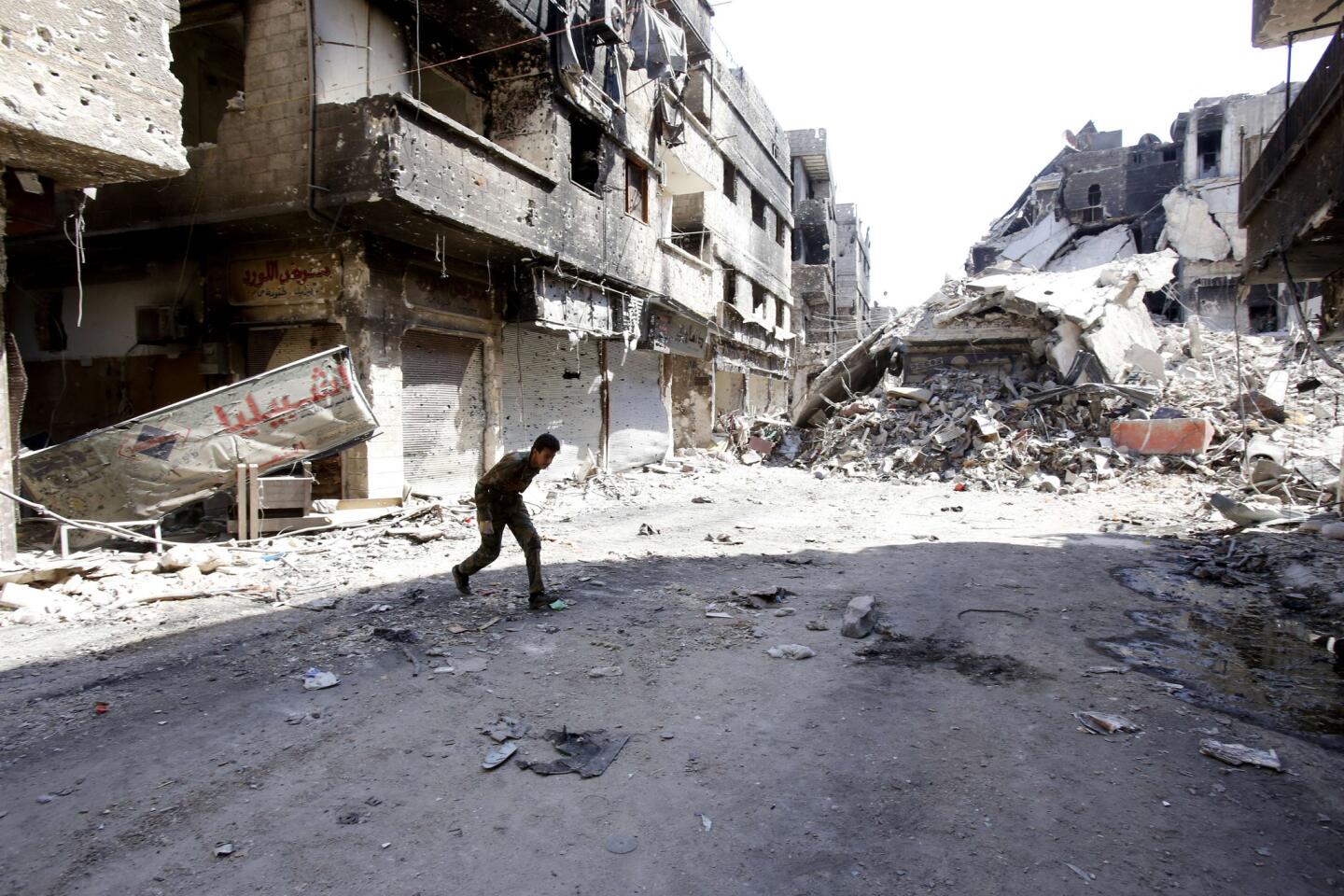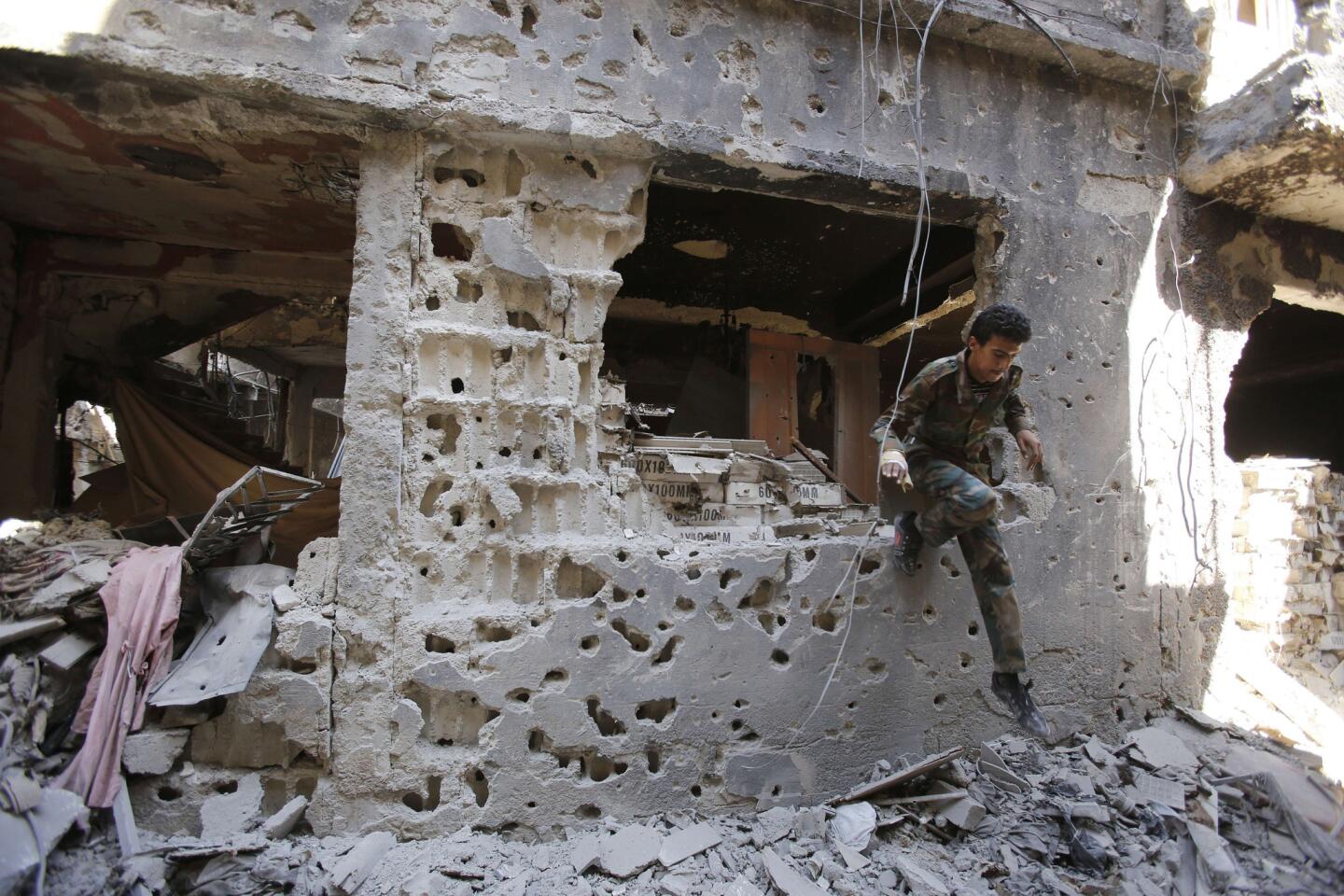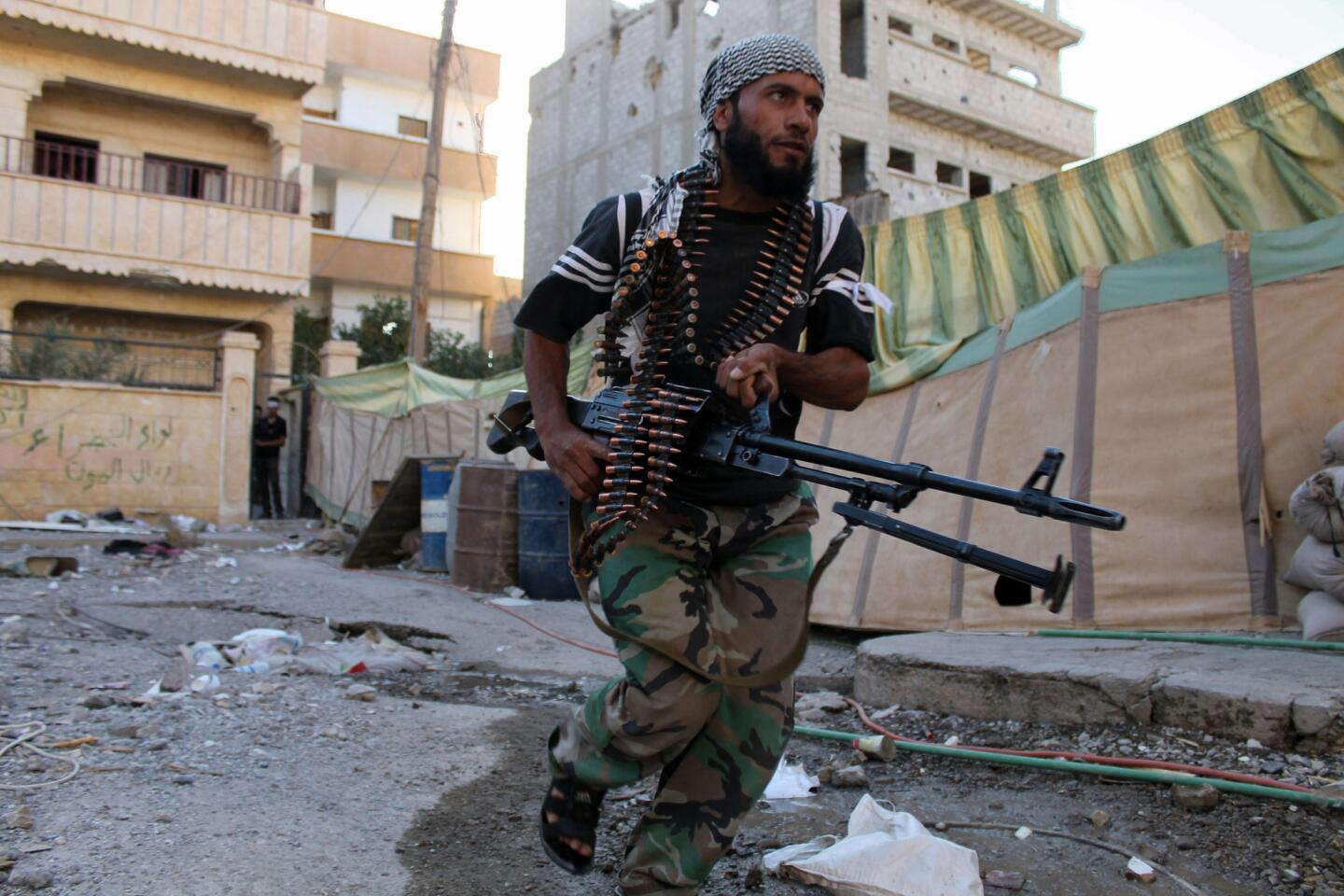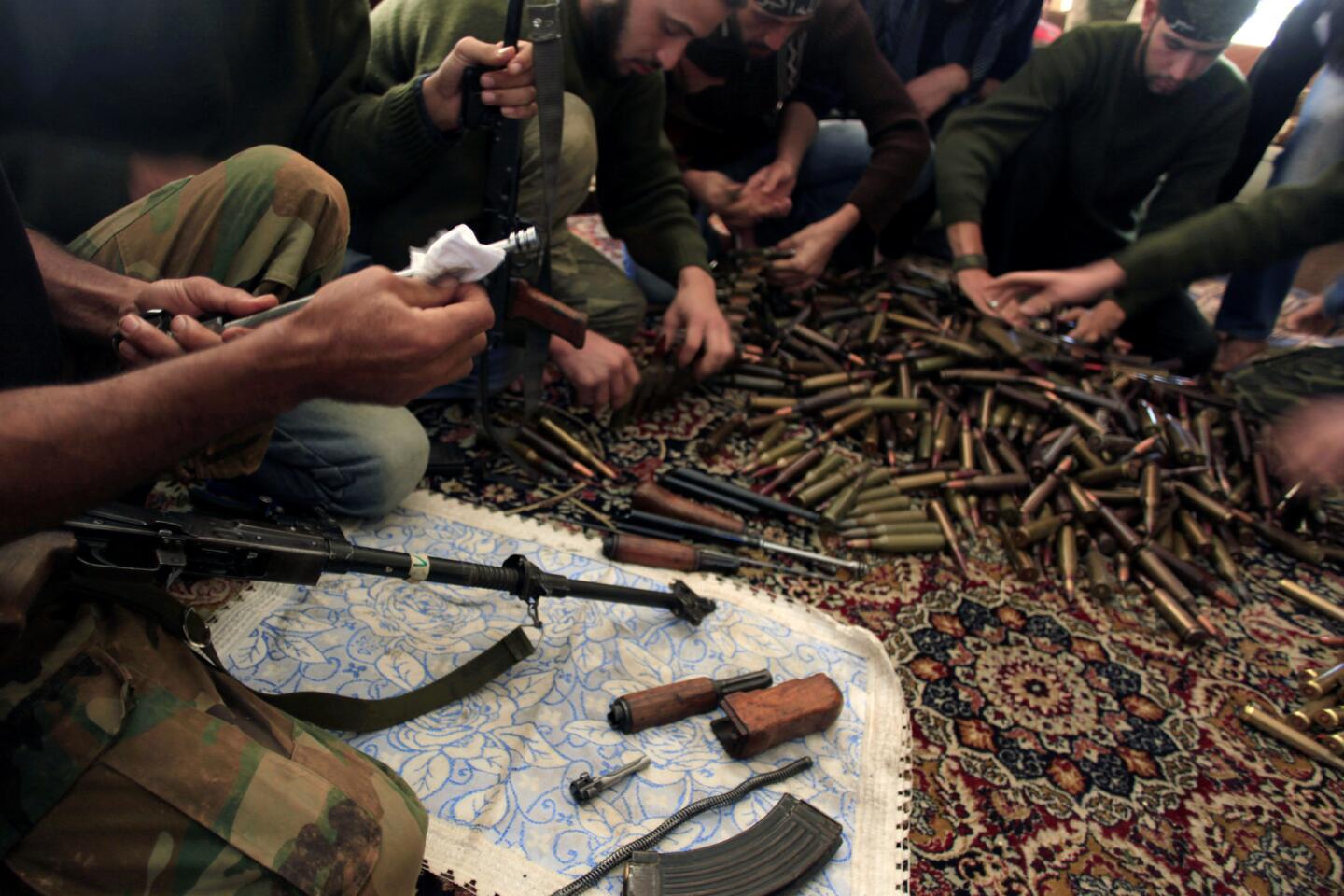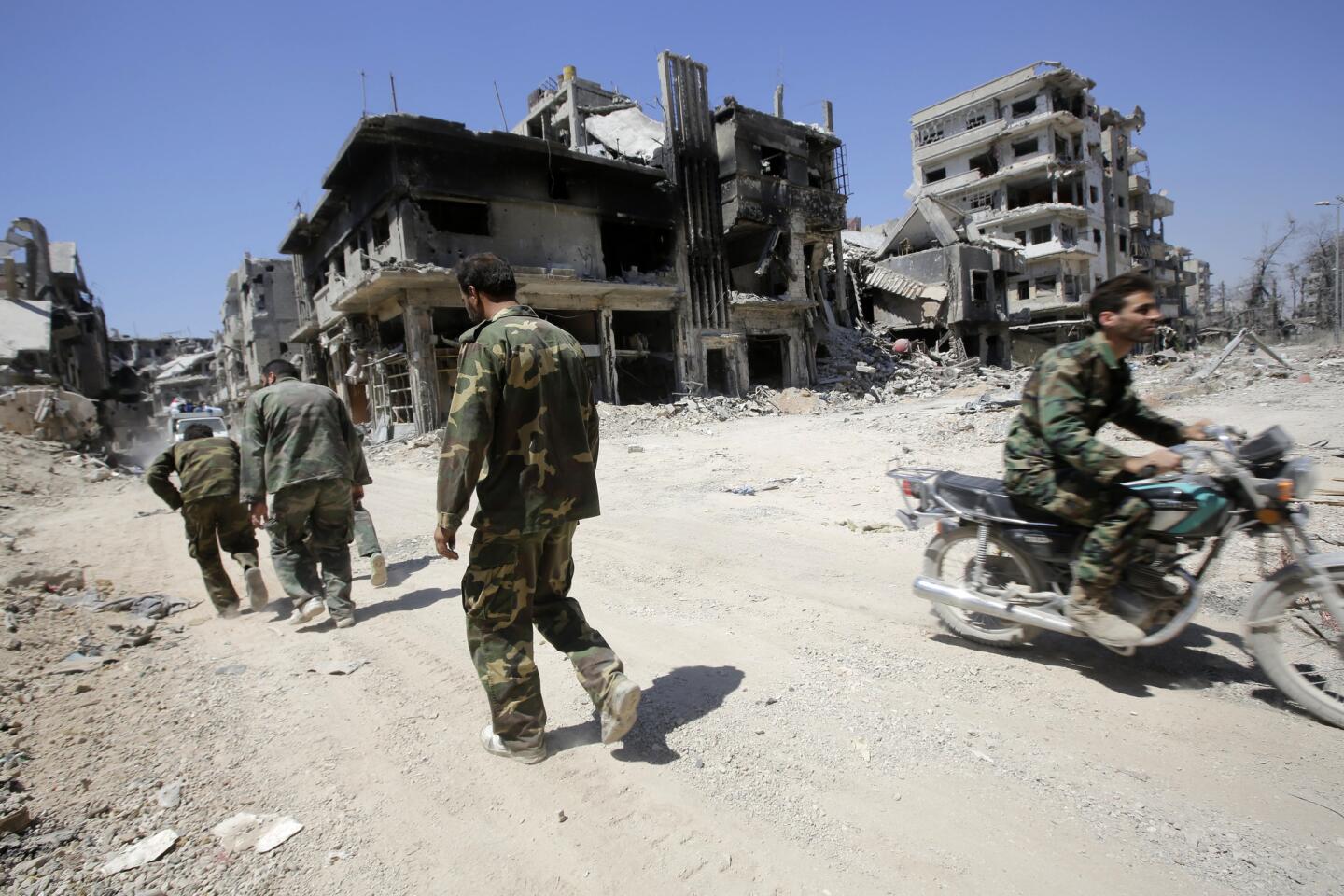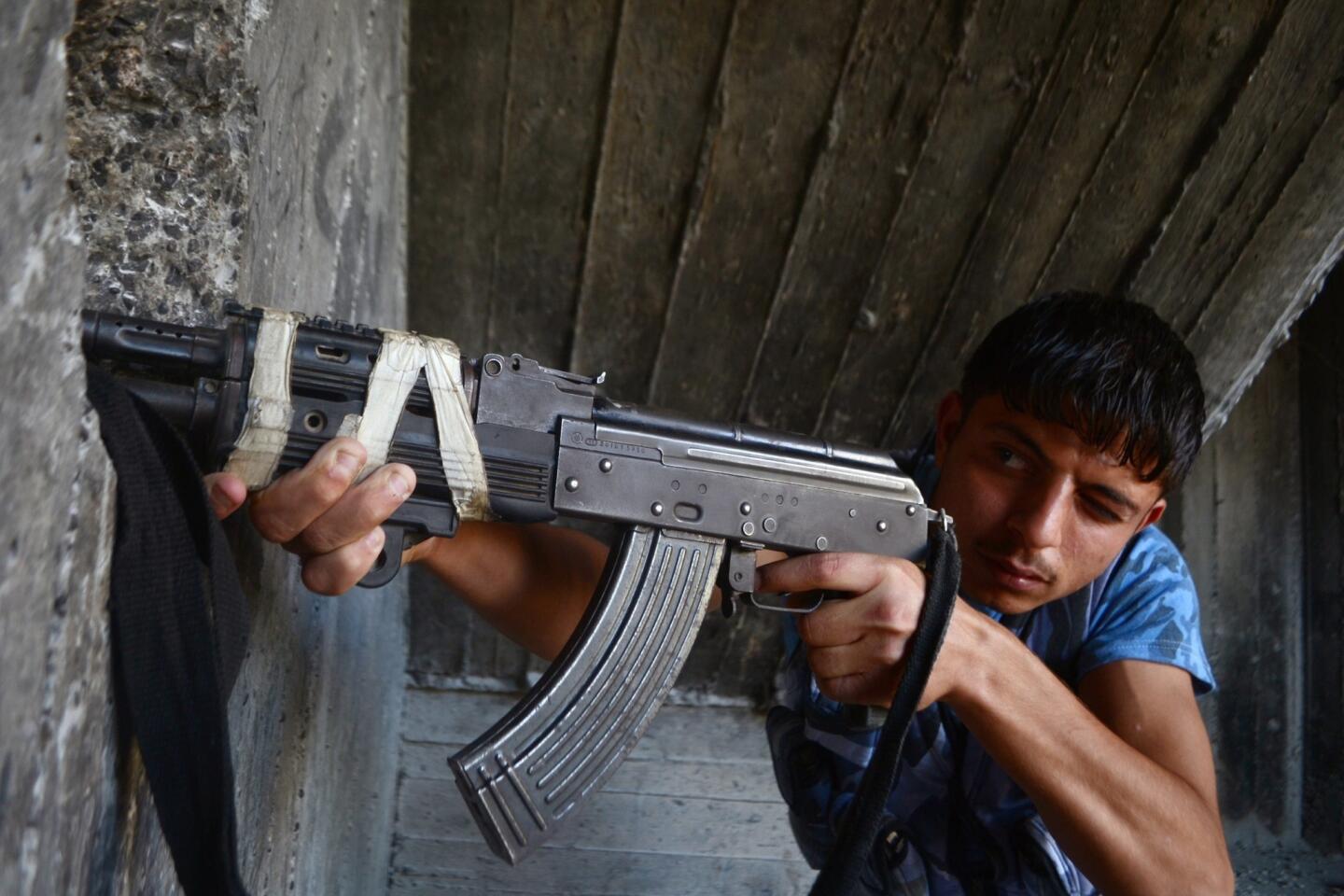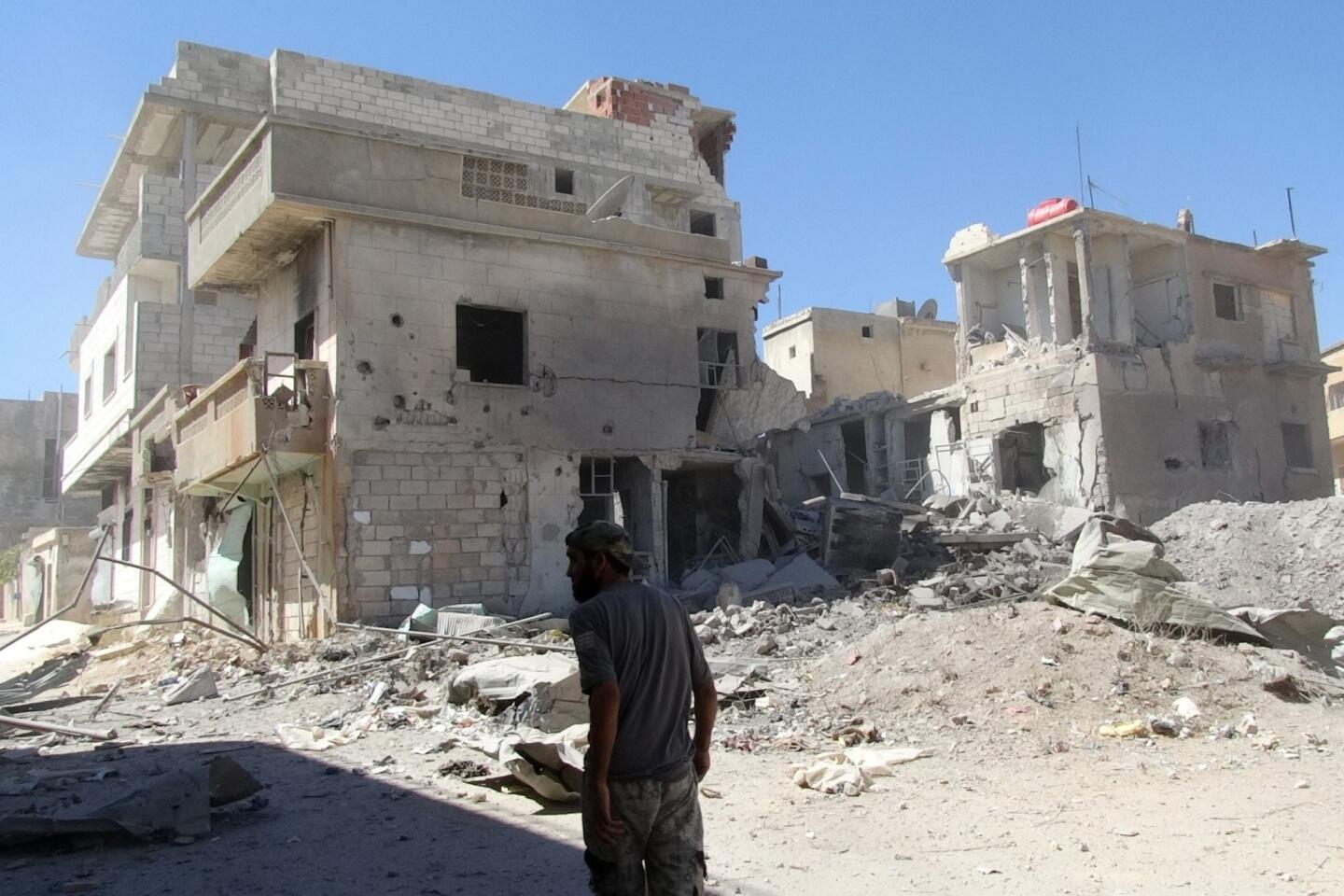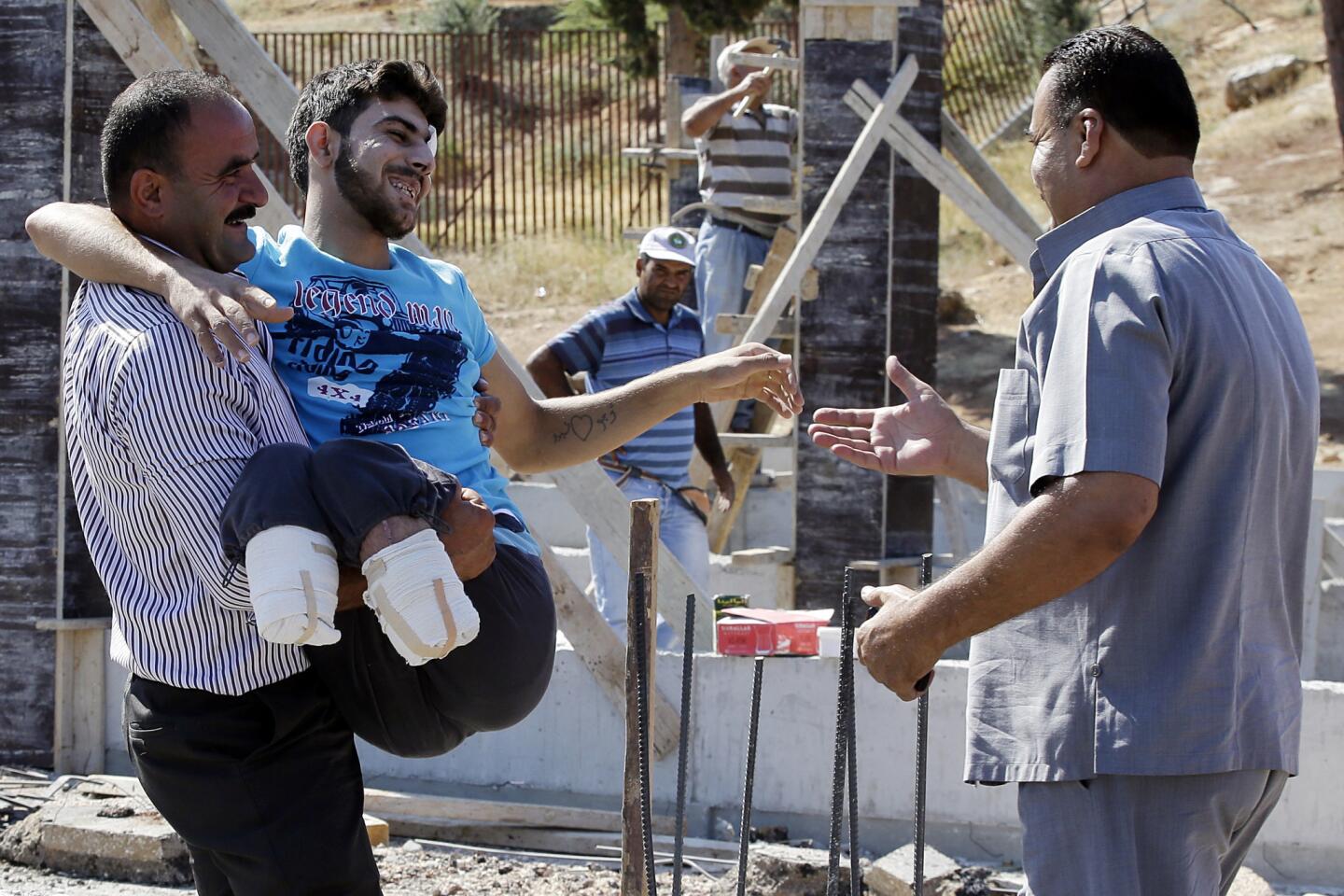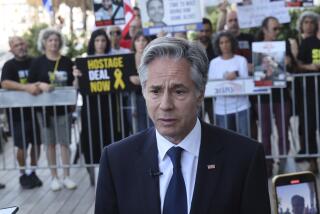Wary of U.S. attack, Syria accepts Russian plan
MOSCOW -- Syria confirmed Tuesday that it has accepted a Russian plan to allow its chemical weapons to be placed under international control and eventually dismantled.
The Syrian agreement is based on the understanding that the plan could prevent a U.S. military strike, Syrian Foreign Minister Walid Moallem said.
“We agreed with the Russian initiative, proceeding from the understanding that it must cut the ground from under the feet of the U.S. aggression against our country,” Moallem said during a meeting with the speaker of Russia’s lower house of parliament, Sergei Naryshkin.
Russian Foreign Minister Lavrov said the two sides were working on details of the plan.
“The Russian side is now doing exactly that: preparing a clear-cut plan and conducting at this very moment consultations with the Syrian side,” Lavrov told reporters. He said Russia intends to deliver a proposal soon to U.N. Secretary General Ban-Ki Moon.
[Updated 11:44 a.m. Sept. 10: Lavrov also said Tuesday that Russia could not support a resolution that France was preparing to submit to the U.N. Security Council providing a framework for carrying out the Russian plan. According to a statement posted on the Russian Foreign Ministry website, Lavrov said the proposed resolution was “unacceptable” because it held Syria responsible for the use of chemical weapons. Both Syria and Russia have maintained that an alleged poison gas attack in a Damascus suburb recently was the fault of anti-government rebels, not the Syrian government.]
The initiative has advantages for most -- but not all -- of the major players in the crisis, political expert Fyodor Lukyanov said.
“The initiative certainly provides ample opportunities for the United States, Russia and Syria to achieve an acceptable compromise without any of the three sides’ loss of face,” said Lukyanov, editor-in-chief of the journal Russia in Global Affairs. “Syrian rebels, however, appear to be the only losing side from a solution that would prevent a U.S. military strike against Assad, which the rebels are so looking forward to.”
ALSO:
Four face death penalty after conviction in Indian gang rape
Kenya deputy president denies guilt before international court
‘Significant new evidence’ cited in 1961 death of U.N.’s Hammarskjold
sergei.loiko@latimes.com
More to Read
Sign up for Essential California
The most important California stories and recommendations in your inbox every morning.
You may occasionally receive promotional content from the Los Angeles Times.
